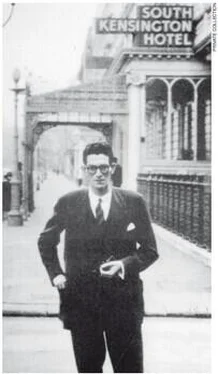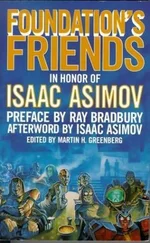Ben Macintyre - A Spy Among Friends
Здесь есть возможность читать онлайн «Ben Macintyre - A Spy Among Friends» весь текст электронной книги совершенно бесплатно (целиком полную версию без сокращений). В некоторых случаях можно слушать аудио, скачать через торрент в формате fb2 и присутствует краткое содержание. Год выпуска: 2014, ISBN: 2014, Издательство: Bloomsbury Publishing, Жанр: Старинная литература, на английском языке. Описание произведения, (предисловие) а так же отзывы посетителей доступны на портале библиотеки ЛибКат.
- Название:A Spy Among Friends
- Автор:
- Издательство:Bloomsbury Publishing
- Жанр:
- Год:2014
- ISBN:9781408851746
- Рейтинг книги:5 / 5. Голосов: 1
-
Избранное:Добавить в избранное
- Отзывы:
-
Ваша оценка:
- 100
- 1
- 2
- 3
- 4
- 5
A Spy Among Friends: краткое содержание, описание и аннотация
Предлагаем к чтению аннотацию, описание, краткое содержание или предисловие (зависит от того, что написал сам автор книги «A Spy Among Friends»). Если вы не нашли необходимую информацию о книге — напишите в комментариях, мы постараемся отыскать её.
A Spy Among Friends — читать онлайн бесплатно полную книгу (весь текст) целиком
Ниже представлен текст книги, разбитый по страницам. Система сохранения места последней прочитанной страницы, позволяет с удобством читать онлайн бесплатно книгу «A Spy Among Friends», без необходимости каждый раз заново искать на чём Вы остановились. Поставьте закладку, и сможете в любой момент перейти на страницу, на которой закончили чтение.
Интервал:
Закладка:
‘My future looked romantic,’ Philby wrote. Deutsch laid out a vision of that future: Philby and Litzi must break off all communist contacts; rather than join the party, he should establish a new political image as a right-winger, even a Nazi-sympathiser. He must become, to all outward appearances, a conventional member of the very class he was committed to opposing. ‘By background, education, appearance and manners you are an intellectual, a bourgeois. You have a marvellous career ahead of you. A bourgeois career,’ Deutsch told him. ‘The anti-fascist movement needs people who can enter into the bourgeoisie.’ Hidden inside the establishment, Philby could aid the revolution in a ‘real and palpable way’. Deutsch began to instruct Philby on the rudiments of tradecraft: how to arrange a meeting; where to leave messages; how to detect if his telephone was bugged; how to spot a tail, and how to lose one. He presented Philby with a new Minox subminiature camera, and taught him how to copy documents. Philby memorised Deutsch’s lessons ‘like poetry’. His double life had begun.
Deutsch gave Philby the affectionate codename ‘Sonny’ (Söhnchen in German), and reported his catch to the London rezident , the regional control officer of the NKVD (the predecessor organisation to the KGB), who passed on the news to Moscow Centre, the Soviet intelligence headquarters: ‘We have recruited the son of an Anglo agent, advisor to Ibn-Saud, Philby.’ Moscow was impressed: ‘What are his prospects for a diplomatic career? Are they realistic? Will he choose his own path or will his father “suggest” he meet someone and discuss it? That would be good.’ Deutsch instructed his new protégé to draw up a list of acquaintances and contemporaries, from Oxford as well as Cambridge, who might also be recruited to the cause. He told him to discreetly explore whatever documents St John Philby kept in his office at home, and to photograph ‘the most interesting’.
Asking Philby to spy on his own father was surely a test of his commitment, and Philby passed it easily. He did what was asked of him without hesitation. Deutsch reported that his new recruit ‘refers to his parents, who are well-to-do bourgeois, and his entire social milieu with unfeigned contempt and hatred’. Philby was doubtless putting on a display of class-warrior zeal for Deutsch, for he was spellbound by his spymaster, ‘his marvellous education, his humanity, his fidelity to building a new society’. They met often, always in ‘the remoter open spaces in London’, and once in Paris. Deutsch flattered and inspired his young ward. When Philby’s relationship with Litzi began to falter, the older man dispensed marital advice. (‘His wife was his first lover in his life,’ Deutsch reported to Moscow, keen, as ever, to establish a link between sex and socialist zeal. ‘When difficulties arose in their relationship, they would confide in me and both followed my advice.’)
Philby was bonded, ideologically and emotionally, to his charismatic Soviet controller. ‘I sometimes felt we had been friends since childhood,’ he wrote. ‘I was certain that my life and myself interested him not so much professionally as on a human level.’ The fatal conceit of most spies is to believe they are loved, in a relationship between equals, and not merely manipulated. Deutsch made a careful study of Philby’s psychology, the flashes of insecurity beneath the debonair exterior, the unpredictable stammer, his veiled resentment of a domineering father. Deutsch reported to the Centre that Philby had potential but needed ‘constant encouragement’: ‘Söhnchen comes from a peculiar family. His father is considered at present to be the most distinguished expert on the Arab world . . . he is an ambitious tyrant and wanted to make a great man out of his son.’ Deutsch noted his acolyte’s intellectual curiosity, his fluctuating moods, his old world manners, and his resolve: ‘It’s amazing that such a young man is so widely and deeply knowledgeable . . . He is so serious he forgets that he is only twenty-five.’
Deutsch urged Philby to get a job in journalism – ‘Once you’re inside, you’ll look around and then decide which way to go’ – and he reassured Moscow that Philby’s family contacts would ensure swift promotion. ‘He has many friends from the best homes.’ Philby soon obtained a job as a sub-editor at the World Review of Reviews , a literary and political monthly, before moving on to the Anglo-German Trade Gazette , a magazine devoted to improving economic relations between Britain and Germany which was partly financed by the Nazi government. Completing this lurch from extreme left (secretly) to extreme right (publicly), he joined the Anglo-German Fellowship, a society formed in 1935 to foster closer understanding with Germany. A sump for the forces of appeasement and Nazi admiration, the fellowship included politicians, aristocrats and business leaders, some naive or gullible, others rampantly fascist. With views diametrically opposed to his own, such people offered Philby ideal political camouflage, as well as information, eagerly received in Moscow, about links between the Nazis and their British sympathisers. Philby travelled regularly to Berlin on behalf of the fellowship, and even met the German foreign minister, von Ribbentrop. He later claimed to have found playing the part of a keen young fascist ‘profoundly repulsive’ because ‘in the eyes of my friends, even conservative ones, but honest conservatives, I looked pro-Nazi’. Former friends from the left were aghast at his apparent conversion, and some shunned him. Deutsch commiserated, telling Philby he knew ‘how difficult it is to leave old friends’.
Litzi and Philby’s commitment to communism proved more durable than their commitment to each other; they separated, without rancour, and she moved to Paris. To Moscow’s surprise, Philby found nothing of intelligence value among his father’s papers. The NKVD was convinced that someone as well connected as St John Philby, who travelled widely and freely, must be a spy. ‘It seems unlikely that his father . . . would not be a close and intimate collaborator with the Intelligence Service.’ Not for the last time, Moscow elevated its erroneous expectations into fact. Meanwhile Philby dutifully handed over a list of potential recruits among his left-wing Cambridge friends, including Donald Maclean and Guy Burgess.
*
Maclean, still a committed communist, was by now in the Foreign Office. Philby invited him to dinner, and hinted that there was important clandestine work to be done on behalf of the party. ‘The people I could introduce you to are very serious.’ Philby instructed Maclean to carry a book with a bright yellow cover into a particular café on a given day. ‘Otto’ was waiting for him, and duly signed up this ‘very serious and aloof’ young man with ‘good connections’. Codenamed ‘Orphan’, Maclean, too, began to shed his radical past. ‘Sonny has high praise for Orphan,’ Deutsch reported to Moscow. Burgess seemed a more dubious prospect: ‘Very smart . . . but a bit superficial and could let slip in some circumstances.’
Characteristically, Burgess sensed he was being denied admission to a most enjoyable and risky party, and brazenly barged his way in. One night he confronted Maclean: ‘Do you think that I believe for even one jot that you have stopped being a communist? You’re simply up to something.’ A little reluctantly, Deutsch added Burgess to his roster. Burgess duly announced, with maximum fanfare, that he had swapped Marx for Mussolini, and was now a devotee of Italian fascism. It was Burgess who subsequently introduced Deutsch to yet another recruit, Anthony Blunt, already an art historian of note. Slowly, discreetly, with paternal diligence and Philby’s help, Deutsch added one link after another to the Cambridge spy chain.
Читать дальшеИнтервал:
Закладка:
Похожие книги на «A Spy Among Friends»
Представляем Вашему вниманию похожие книги на «A Spy Among Friends» списком для выбора. Мы отобрали схожую по названию и смыслу литературу в надежде предоставить читателям больше вариантов отыскать новые, интересные, ещё непрочитанные произведения.
Обсуждение, отзывы о книге «A Spy Among Friends» и просто собственные мнения читателей. Оставьте ваши комментарии, напишите, что Вы думаете о произведении, его смысле или главных героях. Укажите что конкретно понравилось, а что нет, и почему Вы так считаете.












